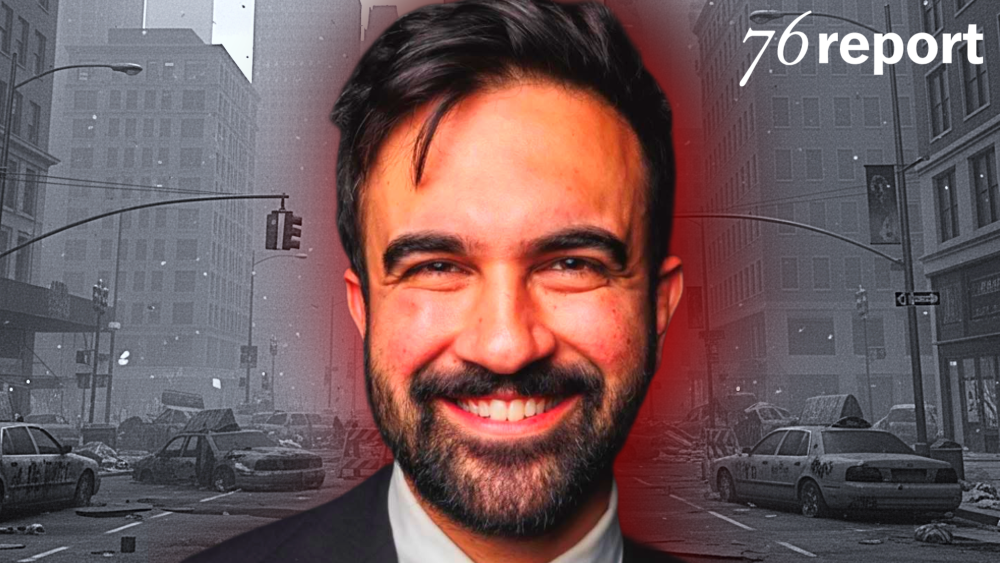We both know New York City quite well. Trish came to New York to attend Columbia University and then built her career and started her family there. Rob was born in Manhattan and likewise studied, lived and worked in the city for decades.
Under the leadership of Rudy Giuliani and then Michael Bloomberg, New York City thrived as the global financial capital of the world. Together, these two mayors built a strong economic foundation for the city out of the wreckage of the 1980s crack epidemic.
Subsequent mayors may have been less talented but at least benefited from a strong hand that was left to them.
Cities, like countries, do not just thrive on their own. Success requires leadership.
Bloomberg leans left on many social issues, but he was relatively tough on crime. In fact, his support for “stop-and-frisk” policing practices helped end his very short-lived bid to become the 2020 Democrat Presidential candidate.
Bloomberg also deserves credit for several smart moves to develop New York economically and catalyze the city’s transformation into a major technology hub.
As an entrepreneur, Bloomberg sat at the intersection of finance and technology. He built from scratch what would become the world’s most important and relied upon financial information provider.
Thanks in no small part to various initiatives of his administration, leading tech companies—including Meta, Amazon, Microsoft, IBM, Shopify, and TikTok—established a large presence in the city. In the venture capital industry, New York now ranks second in the United States, trailing only Silicon Valley.
After the Global Financial Crisis, Bloomberg concluded that New York was too dependent on finance and wanted to build a stronger engineering and innovation economy.
In 2010, his administration launched the Applied Sciences NYC competition, offering Roosevelt Island land and $100 million in city funding to a university willing to build a new applied tech campus.
Cornell University, partnering with Technion-Israel Institute of Technology, won the bid to build a campus on Roosevelt Island. Bloomberg personally championed the project through rezoning, permitting, and financing decisions.
Cornell Tech opened in 2017. It has since produced thousands of highly trained computer science graduates, playing a role similar to Stanford or Berkeley in the Bay Area. Talent-driven big tech firms have repeatedly cited the institution as a reason that they set up shop in New York.
What’s next for NYC?
A newly elected mayor who cares about economic growth should be excited to inherit an asset as valuable as Cornell Tech. But Zohran Mamdani (who founded the Students for Justice in Palestine chapter at Bowdoin College, from which he graduated in 2014, a year after Bloomberg’s final term ended) has different priorities.
“There are ways to make what seems to be an international battle into a local one,” Mamdani said in 2020. “If you were to look at the lens of BDS [Boycott, Divestment and Sanctions] and how it applies here in New York City, you would say that Cornell-Technion is something you would be talking about.”
“Technion University is an Israeli University that has helped to develop a lot of weapons technology used by the IDF [Israel Defense Force],” he warned.
Mamdani has since stated that he intends to reassess the city’s commitment to Cornell Tech if elected, drawing from the BDS playbook of using political power to penalize Israel economically.
The Cornell Tech initiative is not the lynchpin of the New York City economy, but Mamdani’s hostility to it exemplifies his mindset. This is one of many positions held by Mamdani that have the potential to erode New York’s attractiveness as a destination for employers.
The anti-Bloomberg
If mayors like Giuliani and Bloomberg were committed to making New York an economic success story, Mamdani’s policy plans seem purpose-built for turning it into a disaster zone.
Consider his plans to change corporate tax rates. Mamdani wants to bring the highest marginal rates on corporate income up from an already high 7.25% to 11.5%, giving firms an immediate financial incentive to relocate.
Perhaps the most important variable that companies consider when setting up shop or expanding in a particular location is, will prospective employees want to live here?
People tend to think that companies lease fancy office space to impress customers or investors, but the main priority—as any major office landlord will tell you—is to attract workers.
Who wants to work in an inconveniently located office with no amenities, bad views, outdated fixtures and broken elevators?
The same logic applies to the city in which these offices are located. There is no point in leasing office space in a city this is unappealing to potential workers.
Mamdani intends to raise the marginal income tax rate by 2% on the city’s highest earners. This would make marginal individual income tax rates by far the highest in the U.S.





